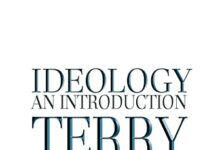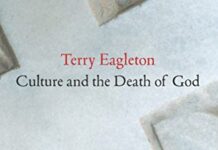
Ebook Info
- Published: 2010
- Number of pages: 208 pages
- Format: PDF
- File Size: 1.18 MB
- Authors: Terry Eagleton
Description
One of our most influential literary critics challenges those who too easily dismiss religion and faith Terry Eagleton’s witty and polemical Reason, Faith, and Revolution is bound to cause a stir among scientists, theologians, people of faith and people of no faith, as well as general readers eager to understand the God Debate. On the one hand, Eagleton demolishes what he calls the “superstitious” view of God held by most atheists and agnostics and offers in its place a revolutionary account of the Christian Gospel. On the other hand, he launches a stinging assault on the betrayal of this revolution by institutional Christianity.There is little joy here, then, either for the anti-God brigade—Richard Dawkins and Christopher Hitchens in particular—nor for many conventional believers. Instead, Eagleton offers his own vibrant account of religion and politics in a book that ranges from the Holy Spirit to the recent history of the Middle East, from Thomas Aquinas to the Twin Towers.
User’s Reviews
Editorial Reviews: Review ‘Eagleton is one of Britain’s leading literary critics and writes with verve and humour.’ — Paul Goodliff, Baptist Times–Paul Goodliff”Baptist Times” (06/18/2010)””Reason, Faith, and Revolution” is a challenging, feisty contribution to the current public debate about God and religion. It is poetic, wise, and clear. Eagleton proves he is more than a literary critic; he’s also an exceptional preacher.” –Kurt Armstrong, “Christian Week”–Kurt Armstrong “Christian Week “”[Eagleton’s] gleeful, often satirical, piercing of the chinks in the armor of modern atheist apologetics is beneficial to any reader interested in the ‘God Debate.'” –James Heiser, “thenewamerican.com”–James Heiser “thenewamerican.com “”Eagleton’s book began as a series of lectures delivered at Yale University. They must have been a riot…. He’s fantastically rude all round, about ‘Ditchkins, ‘ about religion itself, which ‘has wrought untold misery in human affairs’…. It’s terrific polemic.”–Melanie McDonagh, “Evening Standard”–Melanie McDonagh”Evening Standard” (07/16/2009)”Eagleton’s book is a brisk and welcome contribution to the ongoing discussion about the place of religion in the world today. Readers will find plenty to challenge them in this brief snapshot of today’s ‘God Debate.'”–;i>Association for Mormon Letters”–Blair Dee Hodges “Association for Mormon Letters “”There are plenty of things in this book to anger all sorts of people, and few will not find something in it with which to disagree strongly. And that’s just fine. This is an exceptional contribution to recent debates around faith, religion, and atheism.”–Dale B. Martin, Yale University–Dale B. Martin”This is a good and stimulating reading for theologians, and invites in a provocative way to think about theology’s identity and mission in times of deep changes and challenges.” –Lluis Oviedo, “Religion & Theology”–Lluis Oviedo “Religion & Theology “Eagleton’s book “meets the challenge of the New Atheists with a sense of playfulness (for example, he melds the two leading lights of the movement, Richard Dawkins and Christopher Hitchens, into one signifier, “Ditchkins”), and a dogged refusal to let Oxbridge-trained rhetoric stand in for actual reason. The result is a work bathed in wit and punctuated with soaring prose that, while sympathetic to religious truth-claims, ends with a flourish on his Marxist hopes for an embrace of “tragic humanism.””–Lyndon Shakespeare, “Anglican Theological Review”–Lyndon Shakespeare “Anglican Theological Review “”Terry Eagleton has a deserved reputation as one of the most influential of British literary critics and cultural commentators who has developed over his many publications a highly effective communicative style. This book is no exception.”–Oliver Davies, “Scottish Bulletin of Evangelical Theory”–Oliver Davies “Scottish Bulletin of Evangelical Theory “”There is a great deal here that readers from different backgrounds will find informative. It is a polemical book, but the deeper sense of the polemic is the subtle and multi-formed argument that what is at stake here, in the distinction between religious and secularist values, is actually a way of being alive. As Eagleton powerfully states, faith is never about the superficial use of reason.”–Oliver Davies, “Scottish Bulletin on Evangelical Theory”–Oliver Davies”Scottish Bulletin on Evangelical Theory” (05/01/2011).”..[a] gloriously rumbustious counter-blast to Dawkinsite atheism…paradoxes sparkle throughout this coruscatingly brilliant polemic…. Eagleton is stronger on reason than Ditchkins, for he thinks carefully about what his opponents say…. This is, then, a demolition job which is both logically devastating and a magnificently whirling philippic…. It is easy to see why a lot of people will not be happy with this book. Much of what it says is too true.”–Paul Vallely, “The Independent”–Paul Vallely”The Independent” (07/17/2009)”Eagleton is one of Britain”s leading literary critics and writes with verve and humour.” — Paul Goodliff, Baptist Times–Paul Goodliff”Baptist Times” (06/18/2010)’A boisterous polemic … Eagleton yields to none in his denunciation of institutional Christianity and a punitive, vengeful God as a betrayal of Jesus’s championing of the poor and rejected.’–Jonathan Benthall”Times Literary Supplement” (12/11/2009)”[B]etter than any previous book of its kind.”–James Wood, “The New Yorker”–James Wood”The New Yorker” (08/31/2009)”[Eagleton”s] gleeful, often satirical, piercing of the chinks in the armor of modern atheist apologetics is beneficial to any reader interested in the ”God Debate.”” –James Heiser, “thenewamerican.com”–James Heiser “thenewamerican.com “”Brisk, funny, and challenging . . . . One of the most fascinating, most original and prickliest works of philosophy to emerge from the post-9/11 era.”–Andrew O’Hehir, “Salon”–Andrew O’Hehir”Salon” (04/01/2009)”Eagleton is an unconventional and entertaining thinker. His book is as much about capitalism, politics, and literary criticism as it is about religion.” –Kurt Kleiner, “The Globe and Mail”–Kurt Kleiner “The Globe and Mail “”Eagleton writes with lucidity, wit and panache and, though an atheist himself, successfully shreds what the conflated Ditchkins say in their books.”–Piers Paul Read”Spectator” (11/14/2009)”Eagleton…is a powerful and engaging writer, perhaps no more so than when, with bursts of comic vituperation which recall Kenneth Tynan at his best, he is seeing off those he regards as second-rate opponents. But probably more relevant is the sense among many readers and critics that Eagleton is providing a welcome antidote to the rather simple-minded conception of religion that Dawkins and Hitchens selected for their demolition jobs. He is rather like a wise old schoolmaster explaining to two eager young students that the significance of “Hamlet” is hardly exhausted by describing it as ‘a revenge drama’.”–Laurie Taylor, “New Humanist Magazine”–Laurie Taylor”New Humanist Magazine” (07/01/2009)”Eagleton”s book is a brisk and welcome contribution to the ongoing discussion about the place of religion in the world today. Readers will find plenty to challenge them in this brief snapshot of today”s ”God Debate.””–;i>Association for Mormon Letters”–Blair Dee Hodges “Association for Mormon Letters “”Erudite, but often entertaining volume.” –Rich Barlow, “Boston Globe”–Rich Barlow “Boston Globe “”Terry Eagleton is at his best as a critic, and much of the book, which is really a series of lectures delivered at Yale University, is devoted to incisive and angry analyses of what is wrong with our world in the twenty-first century.”–Benjamin Beit-Hallahmi, “Metapsychology Online Reviews”–Benjamin Beit-Hallahmi”Metapsychology” (12/01/2009)Eagleton”s book “meets the challenge of the New Atheists with a sense of playfulness (for example, he melds the two leading lights of the movement, Richard Dawkins and Christopher Hitchens, into one signifier, “Ditchkins”), and a dogged refusal to let Oxbridge-trained rhetoric stand in for actual reason. The result is a work bathed in wit and punctuated with soaring prose that, while sympathetic to religious truth-claims, ends with a flourish on his Marxist hopes for an embrace of “tragic humanism.””–Lyndon Shakespeare, “Anglican Theological Review”–Lyndon Shakespeare “Anglican Theological Review ” About the Author Terry Eagleton is Distinguished Professor of English Literature at the University of Lancaster, England, and Professor of Cultural Theory at the National University of Ireland, Galway. He is also Distinguished Visiting Professor at the University of Notre Dame. Eagleton is also the author of On Evil, published by Yale University Press.
Reviews from Amazon users which were colected at the time this book was published on the website:
⭐There have been numerous responses to the so-called “New Atheists” who have popped up on the New York Times Best Seller list since the turn of the century. Richard Dawkins is the best known of the New Atheists. He was not believing in God before it was popular. Dawkins has the nickname of Darwin’s Rottweiler for the ferocity with which he defends biological science against heresy. His detractors have been nicknamed “fleas.” I’ve read a couple of the attempts to attack the New Atheists, and frankly, they have deserved the nickname. They were forgettable, and I’ve forgotten them. This one is a little different. This is a compilation of a series of lectures Terry Eagleton gave at Yale in April, 2008. Obviously Eagleton knows his scripture. He knows his Christian theology, ancient, medieval, and modern. He is obviously far too well versed in modern philosophy, taking pains to drop names that will be obscure to most of his readers. He identifies Alain Badiou as perhaps the “greatest living French philosopher.” Never heard of him? Neither had I. Neither have, apparently, a lot of people. He also says that Badiou is “predictably almost unknown to British academia.” (117). One of the weaknesses of this volume is that it is permeated with references to great philosophers of this type. This is promoted as a critique of Dawkins and Hitchens, but that is false advertising. Although the book contains critiques of Dawkins and Hitchens, they are by no means his only targets. He targets Hitchens far more than Dawkins. He does not make any serious effort to address the scientific issues at all, thereby necessarily leaving Dawkins untouched for the most part. He implies Hitchens is still a closet Marxist, and spends a lot of effort on a critique of some strain of Marxism, perhaps in favor of some other form of Marxism, which I suppose he thinks must somehow support his argument. Clearly neither Dawkins nor Hitchens rely in the slightest on any Marxist analysis in the books he purports to criticize, and the only thing I can see in common between the New Atheism and Old Marxism is that they count up the same number of gods. Eagleton spends more time attacking other targets. Indeed he goes pages without mentioning the New Atheists, and then comes back to them as if he has suddenly remembered the topic. There are some good observations in the book. I’ll follow Eagleton’s lead and not tell you what they are. Eagleton frequently makes assertions and fails to back them up. My critique of the good observations is that they are by and large irrelevant to the targets. This is due to what I see as a fundamental flaw in the logic of Eagleton’s argument. The flaw causes Eagleton to overshoot his targets completely. At the outset, in order to understand the book you have to know that Eagleton uses a puerile device that is far more annoying than helpful. He uses the device of mixing Dawkins and Hitchens into one, whom he calls “Ditchkins.” While many of the detractors of the New Atheists attack straw men, Eagleton is the first to actually baptize his straw man first. This strategy doesn’t work. He implicitly recognizes it repeatedly during the book when he has to single out one or the other for a particular criticism. While this may set the stage for some juvenile insults, such as referring to Hitchens as “the more bibulous half of Ditchkins,” (52) it is otherwise unnecessary. Generations of scholars have discussed the Communist Manifesto with no need for a Mengels. It allows Eagleton to ascribe positions to “Ditchkins” without providing any support whatsoever. He even identifies Ditchkins’s favorite character in Mann’s The Magic Mountain, a book which, to my recollection, neither half of Ditchkins referred to in the books Eagleton proposes to critique. Also, Dawkins and Hitchens aren’t the only influential New Atheists. He criticizes Daniel Dennett several times–each one unfairly in my view, but that’s another topic. I am curious that he leaves Sam Harris out of the attack. Sam Harris would be a very easy target for Eagleton to miss completely with this barrage. Perhaps he hasn’t heard of him. The “New Atheists” attack “religion,” “faith,” “Christianity,” “Islam,” and the like, but their clear target is the fundamentalist variety that persecutes women and homosexuals, interferes with scientific research, performs clitoridectomies and honor killings, teaches creationism in science classes, thinks the world is six thousand years old, and flies airplanes into buildings. By no means is Eagleton a fundamentalist Christian. He adheres to a much more cerebral Christianity, that owes more to Augustine, Anselm, and Aquinas than to Paisley, Robertson, and generic “televangelists.” He concedes from time to time that others might not agree with his take on Christianity, but he assures us that his version is scripturally based. This is perhaps the biggest and certainly the unifying problem with his book. I think this quote illustrates the problem. “As far as theology goes. Ditchkins has an enormous amount in common with Ian Paisley and American TV evangelists. Both parties agree pretty much on what religion consists in; it is just that Ditchkins rejects it while Pat Robertson and his unctuous crew grow fat on it” (51). But who really does represent Christianity? Is it American Televangelists? Is it the Pope? Or is it a bunch of scholars discussing Fathers of the Church that rank and file Christians have never heard of? What Eagleton misses is that Hitchens, Dickens, Paisley, and Robertson are discussing something they all call Christianity and religion, and Eagleton is discussing something else entirely. He accuses the New Atheists of picking on a straw man, where in fact it is he who defends a straw man. If modern Christianity consisted of theologians deconstructing Summa Theologica, we would have never heard of a God Delusion. Certainly there is an intellectual, studious Christian tradition out there that deserves little of the opprobrium the New Atheists deliver. Dawkins and Hitchens may well be unaware of it, or they may simply not care about it. Christians of Eagleton’s kind have no place taking offense at the New Atheists` tirades. Eagleton assures us that “The account of Christian faith I have just outlined is one which I take to be thouroughly orthodox, scriptural, and traditional. There is nothing fashionable or newfangled about it; indeed, much of it goes back to Aquinas and beyond.” (47). He knows what his reader is thinking. The account of Christian faith he has just meandered about (outline implies an order and structure that is nowhere to be found in the preceding chapter) would be objectionable to many who call themselves orthodox Christians. Eagleton’s God is not an interventionist kind of ruler (9). One of the best reasons for being a Christian is that you don’t like having to work (11). “The New Testament considers the family largely a waste of time.” (14) “Jesus has very little to say about sin at all” (20). “Jesus was probably celibate because he believed that the kingdom of God was about to arrive any moment, which left no time for mortgages, car washes, children, and other such distracting domestic phenomena” (25) “Jesus is remarkably laid back about sexuality” (28). “Jesus’s attitude to the family is one of implacable hostility” (31). Try those out on your more traditional Christian friends. He sees what’s coming. “Those who would dismiss what I would see as soundly based readings of the Gospel because they are not always widely shared among Christians are rather like those who object to some soundly based doctrines of liberalism simply because a lot of ordinary men and women believe in electrocuting pedophiles and shipping immigrants back to where they came from” (60). So-called Christians should not feel all that bad about not knowing what their religion is all about. Apparently Muslims do not either (149). There is plenty else to complain about. A lecture is necessarily less organized than a book, but this lecture takes stream of consciousness about as far as it can go. It is as if Eagleton wrote a brilliant lecture, but left his notes at home and was forced to deliver the lecture from memory while being distracted by a noisy air conditioner. He changes topic without warning, making his argument difficult to follow. After long and irrelevant asides, he returns to his topic, forcing the reader to flip back five pages to remind himself what exactly was the point before the author left off on a dissertation on The Magic Mountain. He excuses the “conversational tone” in the introduction, but that does not suffice. This is not the “conversational tone” of a lecture but the disjointed tone of a dormitory bull session. He repeatedly makes extreme assertions and wanders off onto another topic without the slightest attempt to justify them. “Christianity was never meant to be an explanation of anything in the first place.” (7) Aquinas believed that there was no need to bring God into scientific investigation. (9). Heidigger misunderstood Aquinas (79). Other assertions are just bizarre, the kind of philosophical, superstitious, or metaphysical nonsense that one cannot ridicule because there’s no way to do better than a simple quote. “An atheist who has more than a primitive (one might say Satanic) understanding of theology is as rare as an American who has not been abducted by aliens.” (49) “For one thing, God differs from UFOs or the Yeti in not being even a possible object of cognition. In this sense he is more like the tooth fairy than Big Foot.” (111). “I happen to know as a fact, for example, that the moon deeply affects human behavior, since as a mild species of lunatic I am always aware of when the moon is full even without looking (though I draw the line at baying or sprouting hair on my cheeks)” (133). There are huge passages of the book that are full of exactly the kind of rambling nonsense that has given the disciplines of philosophy and theology the reputation of being the most stuffy and self-important ways of doing nothing. On first reading, the natural instinct is to fear that you do not understand the passages because they are beyond your feeble comprenhension. Only with a bit of detailed study do you become convinced that you do not understand them becaue they contain no actual meaning. They are just metaphysical smoke and mirrors. Dawkins and Hitchens are woefully ignorant of the intricacies of this metaphysical smoke and mirrors. Good for them. Eagleton is wrong about many things. He says the West needs a set of metaphysical values (166). We don’t. “If the British or American way of life really were to take on board the critique of materialism, hedonism, and individualism of many devout Muslims . . . Western civilization would certainly be altered for the good” (154). Nonsense. To the extent that anyone suspects that Eagleton has delivered God’s rejoinder to the New Atheists, they will be disappointed. To the extent that traditional Christians think they have an articulate and erudite defender, they will be appalled. Articulate and erudite he may be. Defender of their faith, he is not. He is more of a scourge than the New Atheists could ever hope to be. He’s throwing them out of the temple, shouting that it should be a house of prayer.JG
⭐This collection of essays is written in Eagleton’s incomparably beautiful style that is funny and incisive at the same time. The theme of the essays is fascinating: Eagleton offers an approach to religion from the Left that is neither reductive nor stupid, as similar books often tend to be. The playfulness with which Eagleton talks about religion offers a beautiful contrast to the usual deathly gravitas informing the style that academics both on the Left and on the Right employ to discuss religion.With his incomparable sense of humor, Eagleton makes fun of the entity he calls “Ditchkins.” This is his new term for referring simultaneously to Richard Dawkins and Christopher Hitchens. Eagleton ridicules Ditchkins’s reductive and simplistic vision of religion that forces them to enter into an unproductive science versus religion dichotomy: “Unlike George Bush, God is not an interventionist kind of ruler. It is this autonomy of the world which makes science and Richard Dawkins possible in the first place.” Religion, says Eagleton, deserves an analysis that is at least a little bit more profound than the usual all-religion-is-bad approach taken by many Liberals. In their defense of rationalism, the critics of religion often demonstrate an irrationalism which is as strong as the one they keep denouncing. Eagleton doesn’t stop at destroying the pseudo-rationalist piety of the so-called progressive scientists. He also demonstrates – in his inimitable, hilarious way – the ridiculous nature of the US fundamentalist Evangelicals and their utter failure to understand pretty much anything about the religion they claim to hold in such a high regard.Of course, as happens with every good book, there are things in Eagleton’s essay collection that I find unconvincing. Eagleton surmises that the resurgence of the importance of religion in the late capitalist society is a postnationalist phenomenon. I am a lot more weary than Eagleton of accepting the very existence of post-racism, post-feminism, post-nationalism, and the likes. In the US, for example, virulent nationalism and fundamentalist religiousness walk hand in hand and do not exist without each other. Evangelical fundamentalism has become the national idea of the US for the lack of any other set of beliefs or concerns that can possibly bind this country together. Whenever somebody begins to talk about post-nationalism and post-racism, I know that this is either a fan of the Oprah Show or an academic hiding deep within the ivory tower.Among other things, Eagleton’s Reason, Faith, and Revolution is such a joy to read because of his brilliant deconstruction of Christopher Hitchens’s obnoxious God Is Not Great: How Religion Poisons Everything: “Hitchens seems to hold the obscure Jewish sect of the second-century BC known as the Maccabees responsible not only for the emergence of Christianity but also for the advent of Islam. It is surprising that he does not pin Stalinism on them as well.” Eagleton is absolutely right when he suggests that atheistic fundamentalism is in many respects an exact copy of religious fundamentalism. It is just as intransigent, dogmatic, reductive, and obnoxious.Everything I have said so far might produce the erroneous impression that Eagleton is trying to create a defense of Christianity. This is, of course, not true. The critic is opposed to a unilaterall dismissal of this complex and intricate worldview but he recognizes that “Apart from the signal instance of Stalinism, it is hard to think of a historical movement that has more stupidly betrayed its own revolutionary origins.” Apart from Eagleton’s unintelligent characterization of Stalinism as stupid, this statement could not be more true. Many people’s hatred of Christianity has nothing to do with Jesus’s teachings but is rather addressed to what many of the proponents of this religion have done with it. Are the actions of many of its followers enough, however, to discredit Christianity once and for all?, Eagleton asks. Haven’t the tenets of Liberalism, the ideals of Enlightenment, the central points of Marxism suffered the same fate? Does this mean, then, that we should abandon all of these ideological and intellectual movements in their entirety?In his brilliant analysis, Eagleton hits upon an absolutely wonderful definition of Christianity: “Any preaching of the Gospel which fails to constitute a scandal and affront to the political state is … effectively worthless.” It is amazing that a Marxist like Eagleton has been able to understand the very nature of the New Testament so much better than all the quasi-religious freaks out there put together and multiplied by five.One of the things that make Eagleton’s philosophy especially endearing to me is his passionate defense of the values of Enlightenment. He enumerates the ways in which Enlightenment has come to defeat its own basic propositions but still maintains that the task of Enlightenment is far from over. Just like Christianity, Enlightenment has been discredited by the atrocities done in its name by its misguided, unintelligent followers. This is why so many people today fall over themselves in their rush to abandon the Enlightened philosophy as wrong, evil, and outdated. These thinkers are just as wrong as the wholesale deniers of the value of religion.It is impossible to read this book by one of the greatest living philosophers and literary critics without having uproarious fun on every single page. If you want to indulge yourself by reading a philosophical treatise that is exceptionally well-written and that will make you laugh until it hurts, Eagleton’s new collection of essays is perfect for you.
⭐As usual, a laugh a minute with Terry Eagleton. A savage attack on Ditchkins (Fundamentalist Atheist Poster Boys Dawkins and Hitchens combined) and their embarrassingly bad understanding of Christianity. No mean trick from the atheist Marxist Eagleton. So why? A superficial answer is that Eagleton was annoyed by the intellectual vacuity of said authors. Perhaps, though, atheist Marxist Terry Eagleton, ex-Catholic near seminary boy, sees something worth defending in something of Christianity. Certainly the other Marxist poster boy, Zizek does. I do too.
⭐Possibly one of the most intelligent thinkers alive today in the UK. This book is a gem written by a giant intellect, and what’s more, it’s actually laced with humour which is something of a rarity in academics. It’s a hearty full-bodied refutation of the zealous whimsies of Dawkins and Hitchens. It was a joy to read so why not brighten up one of your days and restore that rare old-fashioned commodity called faith.
⭐Witty and thought provoking. A series of lectures and in my view best heard first as such (fortunately all available on Youtube. Then easier to read at leisure.
⭐Excellent product and service.
⭐A first class read and extremely helpful. Amusing where it helps and very well written generally.
Keywords
Free Download Reason, Faith, and Revolution: Reflections on the God Debate (The Terry Lectures Series) in PDF format
Reason, Faith, and Revolution: Reflections on the God Debate (The Terry Lectures Series) PDF Free Download
Download Reason, Faith, and Revolution: Reflections on the God Debate (The Terry Lectures Series) 2010 PDF Free
Reason, Faith, and Revolution: Reflections on the God Debate (The Terry Lectures Series) 2010 PDF Free Download
Download Reason, Faith, and Revolution: Reflections on the God Debate (The Terry Lectures Series) PDF
Free Download Ebook Reason, Faith, and Revolution: Reflections on the God Debate (The Terry Lectures Series)





